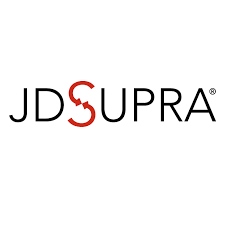Last week, the D. C. Circuit held oral argument in the CFPB’s appeal from the D.C. federal district court’s April 2016 ruling that the CFPB exceeded its statutory authority when it issued a CID to the Accrediting Council for Independent Colleges and Schools (ACICS) in August 2015.
After denying ACICS’s petition to modify or set aside the CID in October 2015, the CFPB filed a petition in D.C. federal district court to enforce the CID. The CID’s statement of purpose indicated that the purpose of the CFPB’s investigation was “to determine whether any entity or person has engaged or is engaging in unlawful acts and practices in connection with accrediting for-profit colleges, in violation of sections 1031 and 1036 of the [CFPA prohibiting unfair, deceptive, or abusive acts or practices], or any other Federal consumer financial protection law.” The CFPB argued that because it has authority to investigate for-profit schools in relation to their lending and financial advisory services, it also has authority to investigate whether any entity has engaged in any unlawful acts relating to accrediting such schools.
The district court observed that ACICS had “repeatedly and accurately explained [that] the accreditation process simply has no connection to a school’s private student lending practices” and that ACICS was not involved in financial aid decisions, meaning that it played “no part in deciding whether to make or fund a student loan.” While noting that the CFPB might be “entitled to learn whether ACICS is connected to potential violations of the consumer financial laws by schools its accredits,” the court stated that the CID’s “statement of purpose and the CFPB’s actual requests belie any notion that its inquiry is limited in this way. Indeed, the statement of purpose says nothing about an investigation into the lending or financial-advisory practices of for-profit schools.”
At the oral argument in the D.C. Circuit, the CFPB’s attorney sparred with Judge David Sentelle as to whether the CFPB had satisfied the CFPA requirements that a CID must “state the nature of the conduct constituting the alleged violation which is under investigation and the provision of law applicable to such violation.” In particular, Judge Sentelle questioned whether the CID’s use of the phrase “unlawful acts or practices” and reference to the CFPA and “any other Federal consumer financial protection law” was sufficiently specific to provide notice of how the conduct under investigation related to financial activity regulated by the CFPB. The CFPB’s attorney argued that the CFPB was not required to describe the nature of the potentially unlawful conduct under investigation with greater specificity in a CID.
The CFPB’s attorney stressed the CFPB’s authority under the CFPA to issue a CID to anyone who might have information relevant to violations of laws enforced by the CFPB even if the CFPB could not enforce such laws directly against the CID recipient. To explain why ACICS might have relevant information, he pointed to the CFPB’s enforcement actions against for-profit colleges accredited by ACICS that made loans to their students and allegedly made misrepresentations to their students about the schools’ accreditation status. The CFPB’s attorney also resisted Judge Karen Henderson’s suggestion that for purposes of whether the CID constituted “fair notice” to ACICS, given the CFPB’s obligation under the CFPA to identify “the provision of law” applicable to the alleged violation under investigation, it would have been “an easy enough matter” for the CFPB to have added the CFPA’s definitions of “federal consumer financial law” and “financial product or service” to put ACICS on notice “of what you were looking at.”
ACICS’s attorney asserted that the CID did not conform to the authority of the CFPB because conduct “in connection with accrediting for-profit colleges” did not implicate any consumer financial laws enforced by the CFPB. In response to Judge Robert Wilkins’ suggestion that ACICS was asking the court to take a “strict construction” of the CID’s wording and ignore other information about the nature of the CFPB’s investigation, ACICS’s attorney argued that even under a broad view, the phrase “in connection with” could not be used to expand the CFPB’s jurisdiction beyond information that could be relevant to a violation of a consumer financial protection law.
Judge Wilkins reacted to that argument by commenting that ACICS was aware of the nature of the potential violations being investigated and that an accrediting organization could have relevant information. ACICS’s attorney asserted, in response, that the stated purpose of the investigation was for the CFPB to look at “conduct in connection with accrediting” for-profit schools rather than to look at for-profit schools and that nothing in “accrediting non-profit colleges” touched on laws that the CFPB has authority to enforce. She also argued that the CID’s deficiency was not one of “semantics,” as Judge Wilkins suggested, but rather that the CID did not fulfill its purpose of providing notice of alleged unlawful conduct “that touches anything the CFPB has the authority to enforce.”
An affirmance by the D.C. Circuit is likely to lead other courts to more closely scrutinize CFPB CIDs for whether they adequately put the recipient on notice of the nature of the investigation and whether the investigation is within the CFPB’s jurisdiction.


